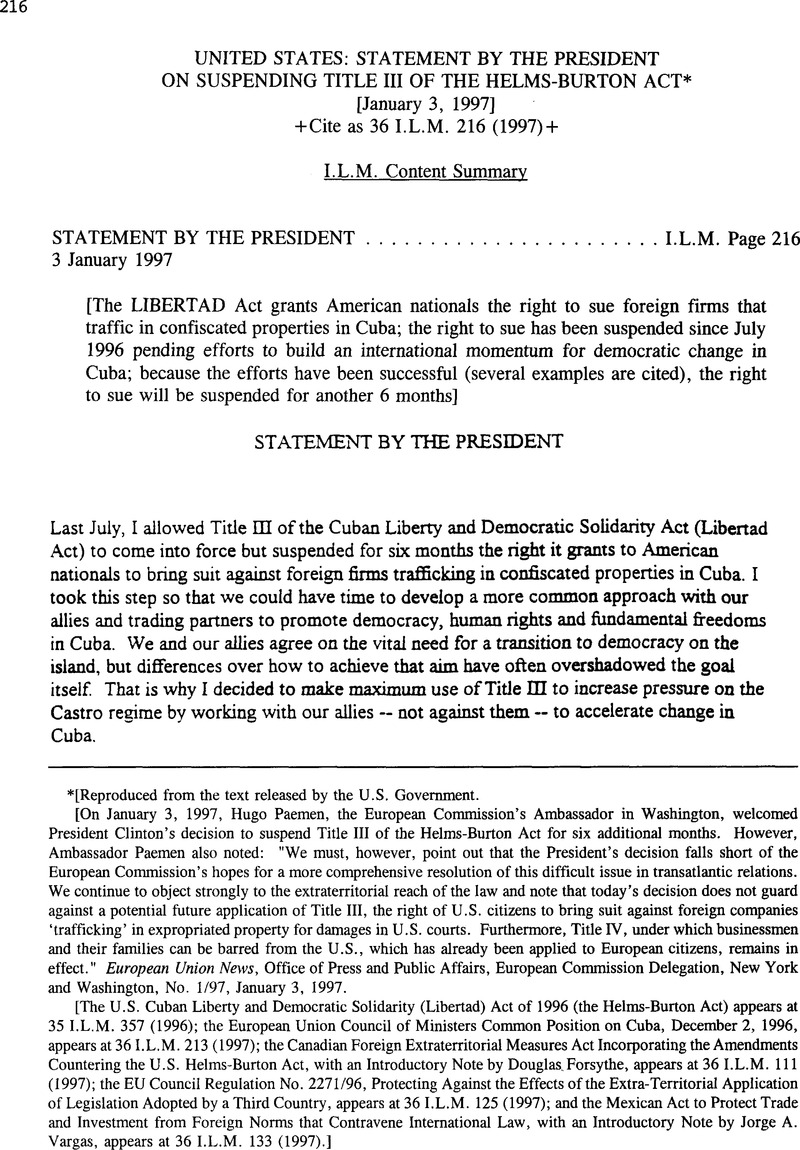No CrossRef data available.
Published online by Cambridge University Press: 27 February 2017

* [Reproduced from the text released by the U.S. Government.
[On January 3, 1997, Hugo Paemen, the European Commission's Ambassador in Washington, welcomed President Clinton's decision to suspend Title III of the Helms-Burton Act for six additional months. However, Ambassador Paemen also noted: “We must, however, point out that the President's decision falls short of the European Commission's hopes for a more comprehensive resolution of this difficult issue in transatlantic relations. We continue to object strongly to the extraterritorial reach of the law and note that today's decision does not guard against a potential future application of Title III, the right of U.S. citizens to bring suit against foreign companies ‘trafficking’ in expropriated property for damages in U.S. courts. Furthermore, Title IV, under which businessmen and their families can be barred from the U.S., which has already been applied to European citizens, remains in effect.” European Union News, Office of Press and Public Affairs, European Commission Delegation, New York and Washington, No. 1/97, January 3, 1997.
[The U.S. Cuban Liberty and Democratic Solidarity (Libertad) Act of 1996 (the Helms-Burton Act) appears at 35 I.L.M. 357 (1996); the European Union Council of Ministers Common Position on Cuba, December 2, 1996, appears at 36 I.L.M. 213 (1997); the Canadian Foreign Extraterritorial Measures Act Incorporating the Amendments Countering the U.S. Helms-Burton Act, with an Introductory Note by Douglas Forsythe, appears at 36 I.L.M. 111 (1997); the EU Council Regulation No. 2271/96, Protecting Against the Effects of the Extra-Territorial Application of Legislation Adopted by a Third Country, appears at 36 I.L.M. 125 (1997); and the Mexican Act to Protect Trade and Investment from Foreign Norms that Contravene International Law, with an Introductory Note by Jorge A. Vargas, appears at 36 I.L.M. 133 (1997).]